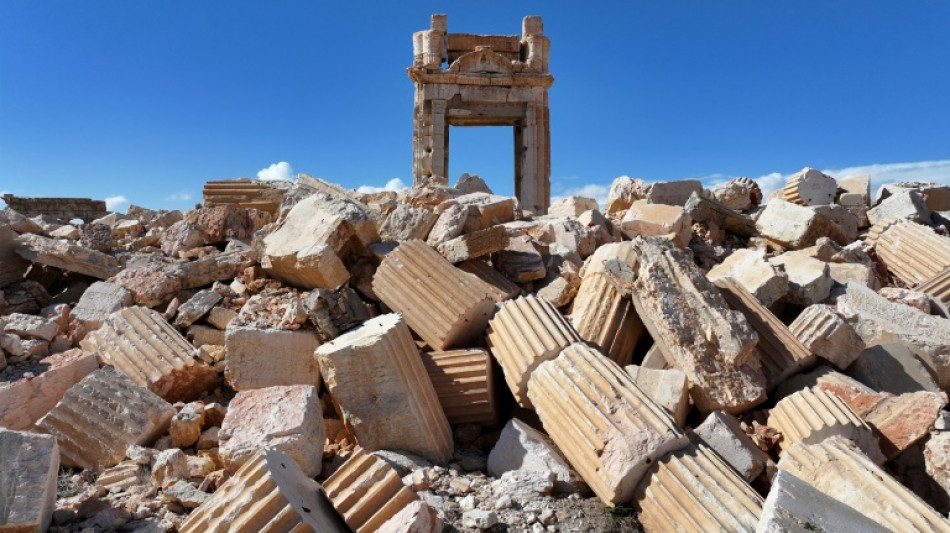
-
 Liverpool's Slot says 'no issue to resolve' with Salah after outburst
Liverpool's Slot says 'no issue to resolve' with Salah after outburst
-
'Stop the slaughter': French farmers block roads over cow disease cull

-
 Stormers see off La Rochelle, Sale stun Clermont in Champions Cup
Stormers see off La Rochelle, Sale stun Clermont in Champions Cup
-
Maresca hails Palmer as Chelsea return to winning ways against Everton

-
 Hungarian protesters demand Orban quits over abuse cases
Hungarian protesters demand Orban quits over abuse cases
-
Belarus frees protest leader Kolesnikova, Nobel winner Bialiatski

-
 Salah sets up goal on return to Liverpool action
Salah sets up goal on return to Liverpool action
-
Palmer strikes as Chelsea return to winning ways against Everton

-
 Pogacar targets Tour de France Paris-Roubaix and Milan-San Remo in 2026
Pogacar targets Tour de France Paris-Roubaix and Milan-San Remo in 2026
-
Salah back in action for Liverpool after outburst

-
 Atletico recover Liga momentum with battling win over Valencia
Atletico recover Liga momentum with battling win over Valencia
-
Meillard leads 'perfect' Swiss sweep in Val d'Isere giant slalom

-
 Salah on Liverpool bench for Brighton match
Salah on Liverpool bench for Brighton match
-
Meillard leads Swiss sweep in Val d'Isere giant slalom

-
 Indonesia flood death toll passes 1,000 as authorities ramp up aid
Indonesia flood death toll passes 1,000 as authorities ramp up aid
-
Cambodia shuts Thailand border crossings over deadly fighting

-
 First urban cable car unveiled outside Paris
First urban cable car unveiled outside Paris
-
Vonn second behind Aicher in World Cup downhill at St Moritz

-
 Aicher pips Vonn to downhill win at St Moritz
Aicher pips Vonn to downhill win at St Moritz
-
Thailand says 4 soldiers killed in Cambodia conflict, denies Trump truce claim

-
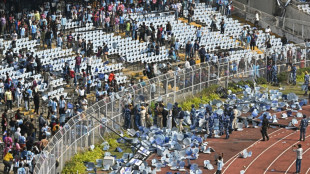 Fans vandalise India stadium after Messi's abrupt exit
Fans vandalise India stadium after Messi's abrupt exit
-
Women sommeliers are cracking male-dominated wine world open

-
 Exhibition of Franco-Chinese print master Zao Wou-Ki opens in Hong Kong
Exhibition of Franco-Chinese print master Zao Wou-Ki opens in Hong Kong
-
Myanmar junta denies killing civilians in hospital strike

-
 Why SpaceX IPO plan is generating so much buzz
Why SpaceX IPO plan is generating so much buzz
-
Thailand continues Cambodia strikes despite Trump truce calls

-
 US envoy to meet Zelensky, Europe leaders in Berlin this weekend
US envoy to meet Zelensky, Europe leaders in Berlin this weekend
-
North Korea acknowledges its troops cleared mines for Russia
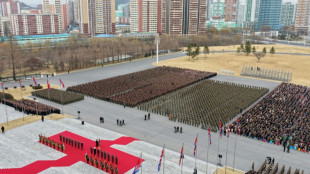
-
 US unseals warrant for tanker seized off Venezuelan coast
US unseals warrant for tanker seized off Venezuelan coast
-
Cambodia says Thailand still bombing hours after Trump truce call

-
 Machado urges pressure so Maduro understands 'he has to go'
Machado urges pressure so Maduro understands 'he has to go'
-
Leinster stutter before beating Leicester in Champions Cup

-
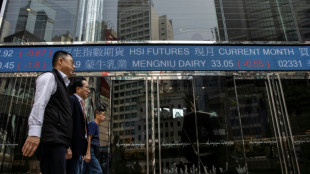 World stocks mostly slide, consolidating Fed-fuelled gains
World stocks mostly slide, consolidating Fed-fuelled gains
-
Crypto firm Tether bids for Juventus, is quickly rebuffed
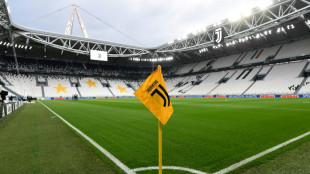
-
 Union sink second-placed Leipzig to climb in Bundesliga
Union sink second-placed Leipzig to climb in Bundesliga
-
US Treasury lifts sanctions on Brazil Supreme Court justice
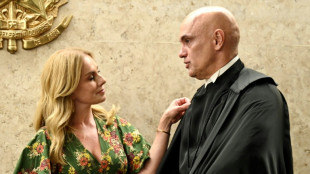
-
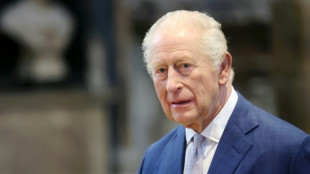 UK king shares 'good news' that cancer treatment will be reduced in 2026
UK king shares 'good news' that cancer treatment will be reduced in 2026
-
Wembanyama expected to return for Spurs in NBA Cup clash with Thunder

-
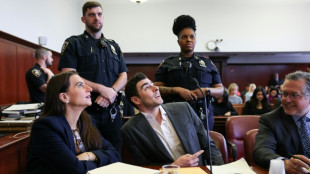 Five takeaways from Luigi Mangione evidence hearings
Five takeaways from Luigi Mangione evidence hearings
-
UK's king shares 'good news' that cancer treatment will be reduced in 2026
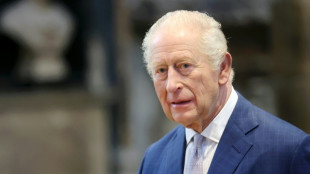
-
 Steelers' Watt undergoes surgery to repair collapsed lung
Steelers' Watt undergoes surgery to repair collapsed lung
-
Iran detains Nobel-prize winner in 'brutal' arrest

-
 NBA Cup goes from 'outside the box' idea to smash hit
NBA Cup goes from 'outside the box' idea to smash hit
-
UK health service battles 'super flu' outbreak

-
 Can Venezuela survive US targeting its oil tankers?
Can Venezuela survive US targeting its oil tankers?
-
Democrats release new cache of Epstein photos

-
 Colombia's ELN guerrillas place communities in lockdown citing Trump 'intervention' threats
Colombia's ELN guerrillas place communities in lockdown citing Trump 'intervention' threats
-
'Don't use them': Tanning beds triple skin cancer risk, study finds

-
 Nancy aims to restore Celtic faith with Scottish League Cup final win
Nancy aims to restore Celtic faith with Scottish League Cup final win
-
Argentina fly-half Albornoz signs for Toulon until 2030


EU antiques import clampdown could gut trade, warn dealers
New European rules designed to crack down on the trafficking of stolen antiques and art are causing alarm among gallery owners, with some dealers warning of suffocating red tape that will affect trade.
The sector is bracing for the implementation of Regulation 2019/880 on June 28 which will introduce strict new requirements for imports into the European Union from non-EU countries.
Dealers wishing to import goods such as archaeological treasures will have to provide documentation and proof that they have been exported from their country of origin legally.
Other items including artworks, coins or books that are worth more than 18,000 euros ($20,500) and are more than 200 years old will also be subject to the restrictions.
"We'll end up buying nothing outside the European Union," warned Antonia Eberwein, vice-president of the National Union of Antiques Dealers (SNA) in France.
She warned that the markets for archaeological items, as well as pre-Columbian, Chinese or Indian art "risk being depleted, without putting an end to illicit trafficking, which by nature is invisible and undeclared".
Pierre Valentin, an art and heritage specialist at London-based law firm Fieldfisher, believes the aim of the regulation is "laudable" but that implementing it could lead to an "evidential nightmare for collectors".
In some cases, goods will have left their country of origin centuries ago before changing hands several times among collectors, with today's owners left needing to prove their property was exported legally.
"We're being asked to provide things that don't exist," said Eberwein, calling the regulation "absurd" and the evidence requirement "a total lack of understanding of the realities" of the market.
- Terror financing -
The regulation is a European response to developments spanning terrorism in the Middle East to changing attitudes to cultural appropriation.
The links between organised crime, terror groups and trafficking in cultural goods have been repeatedly raised by international police group Interpol and the United Nations.
Al-Qaeda and the Islamic State (IS) group were both found to have looted archaeological sites under their control in Iraq and Syria to help fund their activities.
The EU regulation, which was first proposed in 2017 following years of IS attacks in Europe, refers to the pillaging of archaeological sites reaching "an industrial scale".
The European Commission estimated in 2017 that the illicit trade in cultural goods could be worth up to 6.0 billion euros a year, putting it on a par with drugs, arms or counterfeit goods trafficking.
"Money is the life blood of war for the terrorists who attack our continent or who fight in Iraq and Syria," then EU economic affairs commissioner Pierre Moscovici said at the time.
There is also growing sensitivity in Europe about the continent's colonial history and its role in looting artistic and cultural property.
Many major European institutions from the British Museum to the Louvre in Paris are analysing their collections and, in a small number of cases, returning items to their countries of origin.
- 'Losses' -
Edouard de Lamaze, president of France's Council of Auction Houses, which regulates auction houses, said the changes would have some positive effects and "will enhance transparency for buyers and collectors, and strengthen the role of auctioneers".
But it also risks bringing "a heavy administrative burden and a slowdown in activity".
Auctioneers "will now have to systematically rely on experts to trace the history of artworks -- a task that is difficult, if not impossible", especially in the case of inherited items with no documentation, he added.
Some countries, such as Mexico, "ban all exports and claim their entire archaeological heritage", noted Alexandre Giquello, head of France's Drouot auction group.
He views the regulation "very unfavourably" and warned of "significant economic losses".
"While the aim is commendable, it could penalise a large part of the market by introducing a very convoluted process that is slow to implement and will drastically increase delays," he said.
Paris-based gallery owner David Ghezelbash, who specialises in archaeological items from Greece, Egypt and Italy, said he was "not concerned", however.
He operates outside the EU, including with American museums, and he already regularly commissions independent experts "to trace the history of each work, as far as possible".
He acknowledged that "a grey area" would be formed for objects without documented provenance, however, especially inherited pieces which risk being discredited.
A.AbuSaada--SF-PST
